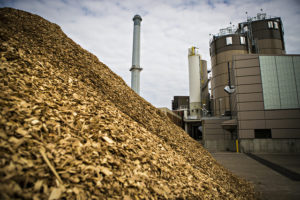by D. Janssen, July 21, 2020 in Euractiv
The Netherlands should phase out the use of biomass for generating electricity as soon as possible, the advisory board of the Dutch government said in a report presented earlier this month.
Biomass is an “indispensable” resource for the circular economy, but burning it is wasteful.
That is the main message of the report issued on 8 July by the Socio-Economic Council (SER), an independent advisory board of the Dutch government consisting of entrepreneurs, employees and independent experts.
In the chemical industry, the building sector and agriculture, biological materials are crucial for the transition to a circular economy, the council writes. But sustainably produced biomass is too scarce to keep using it for the production of heat or electricity, for which other low-carbon and renewable alternatives exist, the report states.
Accordingly, the billions worth of subsidies that were intended for biomass combustion plants should be phased out as well, the advisors say, calling however for measures to preserve “investment security” when designing a phase-out plan.
This means compensation should be handed out to companies who stand to lose out from the abrupt end of bioenergy subsidies.
EU member states are increasingly turning their coal plants into biomass plants in an effort to cut carbon emissions. [Mizzou CAFNR / Flickr]
…

